This page gives a brief background for each of the nominees.


Ben Tattersfield, Founder, Head of Innovation, Sportcor
Jetson Industries was born from me being rubbish at golf and loosing balls constantly. I created a proof of concept in my garage of a golf ball with a Bluetooth key tracker and through multiple iterations ended up with a reasonable proof of concept. I pitched this to the golf industry and got slapped back pretty hard as they make roughly 80% of their revenue from selling balls to people who lose them, so they weren't interested in that level of self-disruption.
I ended up pivoting to cricket using the same technology and secured the commercial agreement with Kookaburra based on the same unit I'd developed for golf. Shortly after landing the commercial deal with Kookaburra and raising $20K of capital, I took the mad gamble of quitting my full-time job to try and get Jetson Industries across the line.
At the time, no-one had developed this product, but many people had tried. The reason I was successful was a case of thinking out of the box and good timing - the right software and hardware components had just come to the market, machine learning algorithms were becoming better and better and I'd designed a product with a focus on grass roots sports, meaning the size and price was a key goal from Day One where the competition was focused on scientific papers or elite sports.

Brad Moran, CEO, CitrusAd
Brad is a resilient, empathetic and hands on leader who enjoys building great products, and great teams. He is a type A, results-driven leader who likes to lead from the front. With no business background or tertiary education, Brad managed to raise $1m during the GFC and founded a company called NoQ (now egrowcery.com).
After establishing an office in the US in 2016 and receiving investment from a US based private equity fund, the board decided that he was no longer required, and he was fired from the company.
Broken-hearted from the way he was treated, physically and mentally burnt out he moved to Queensland. After much deliberation and employment setbacks, Brad decided to begin another tech startup named CitrusAd.
Within a month he had built a business plan and recruited two co-founders and within five months they had raised $1.75m in seed capital at a valuation of $35m. He earned a Federal AC grant ($850k), built and launched the ad serving platform. This platform now includes over a dozen tier one clients in three different countries including companies such as Woolworths, Coles, Officeworks, The Iconic, Ocado, Hy-Vee, Myer and Harvey Norman.
The rate and pace at which CitrusAd has succeeded is unprecedented and speaks volumes about Brad's determination, vision and his ability to build a great team around him to help drive the team toward their common goal.
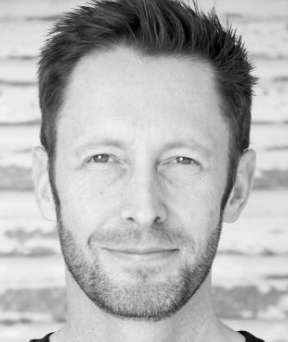
Colin Kinner, Founder & CEO, Startup Onramp
Colin Kinner is a startup ecosystem specialist, coach, trainer and company director with over twenty years' experience working with high-growth technology-based companies,
He has spent his extensive career working to improve the number and success rate of tech startups in Australia. Colin founded Startup Onramp, a training and mentoring program designed to teach startup founders how to succeed, in 2017 and has since provided training and mentorship to almost 200 startup founders across three states, eleven regional and two metropolitan centres.
In addition to shaping the future of the Australian economy by training the next generation of startup founders, Colin is regularly called upon to share his expertise with government and industry. He was the Consulting Editor for The Australian Entrepreneur's Guide, a go-to guide for Australian tech startups as they scale, he authored the first three editions of the StartupAUS Crossroads report and authored a report for Australia's Chief Scientist - Boosting High-Impact Entrepreneurship: A Role for Universities.
Colin is a trusted advisory board member for a number of startups, including SurePact, (a graduate of the Startup Onramp program) and Explorata. He is also a long-standing volunteer mentor at River City Labs where he helped to establish Brisbane's first co-working space that supports the early growth of highly scalable startups in the web, mobile and software space.
Colin Kinner is a pioneer in the Australian innovation ecosystem, with a strong focus on making Queensland the innovation centre of the country.

David Lacey, Professor in Cyber Security & Managing Director IDCARE
In 2014, David Lacey founded Australia's national identity and cybercrime community support service, IDCARE. Since then they've helped tens of thousands of people respond to crime committed online, offering a free, anonymous and confidential service across Australia and New Zealand. It is a blend of behavioural science, cyber security, and victim support.
As background, in 2007 all States, Territories and the Commonwealth agreed to a National Identity Security Strategy. This was in anticipation of things to come - a seemingly insatiable appetite to collect, trade and exploit personal data by business (and Government) that was riding a digital wave. And a seemingly unstoppable appetite by criminals to collect, trade and exploit the same personal data using the very same wave. As the Strategy evolved it became apparent of the need for individual victims of identity to "recover" and "restore" their identity.
In 2013 David was working as a senior executive at the Australian Crime Commission, Australia's National Criminal Intelligence agency focused on disrupting organised crime exploiting the information of Australians. He resigned from this very well-paid job to become a volunteer and form a not-for-profit with only a very modest amount of start-up funding.
David and his small team got started quickly, crisscrossed the country, held community round tables in rural, remote and metro centres, did telephone surveys and lent on big business and government to share their insights and views on impacts. They really wanted to understand the market, their needs, and service and sustainability options that could address identified gaps.
Victims mostly need a mix of behavioural support and pragmatic advice to assist them understand and navigate the 'system'. They found that most organisations struggled to capture incidents, let alone impacts. They heard heaps of stories with the consistent theme that the response journey was often more traumatic than the initial crime.
The essence of IDCARE is about harm reduction and confidence (re)building. They tailor for individuals a personalised response to their circumstances and walk with them through recovery and restoration. They are about providing a place where people can feel listened to, confide in, and be a place that can amplify voices of those that feel voiceless.
Demand is growing at around 50% per annum. The IDCARE profile across Australia and New Zealand continues to enhance reach to those in need. They have responded to over 120,000 phone calls since 2015.
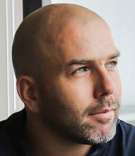
Eban Escott, CEO & co-founder, WorkingMouse
Eban graduated from the Royal Military College of Duntroon, gained a BSc & Doctor of Philosophy at The University of Queensland, followed by a Master of IT from QUT.
Eban found his passion for writing code on an Amstrad computer in the 1980s when he was barely a teenager. During his tertiary studies, he worked several jobs in his field across both small and large organisations, obtaining extensive experience and knowledge about how software is developed.
Eager to be an advocate for change, Eban returned to Australia to complete his PhD. He was attracted to the use of models as first class artefacts in software engineering, seeing them as a way to solve many of the problems he faced as a software engineer. His thesis, A model-driven approach to developing and testing web applications, was the result of his passion for improving software engineering processes and became the foundation of the Codebots technology.
At the end his PhD he had a choice, either tuck away the PhD and return to industry or go out on a limb to go down the startup path. He decided to bootstrap the business and show determination to make it work. Today, there are approximately 60 people employed across the company group and it is still growing.
There is an unquenchable and growing thirst for software worldwide, and a limited number of trained professionals to deliver projects. Dr Eban Escott's Codebots Platform is fulfilling market demand, providing the necessary tools for local development teams to compete with offshore companies and bring operations back to shore.

Josh Cameron, Co-founder of Tanda
Josh Cameron is co-founder of Tanda, a tech startup from Brisbane that is a global market leader in Workforce Success software.
Tanda came about while Josh and his co-founders were at QUT in 2012. Seeing a gap in the market in easy-to-use scheduling and attendance software, the team built an initial prototype that turned into an end-to-end Workforce Success platform. Josh led from the front in market research and customer development to ensure the right product was being built and adopted by users. Tanda now employs over 150 people and has offices in London, Chicago, Manila, and Brisbane.
When doing market research while starting Tanda, Josh found that most competitors were offering clunky and mediocre software that was funded by expensive time clocking hardware. His natural response was to ask: 'why not invest in the software and make it really good'. Coming from a university background, he was motivated to work with students and give them great career options.
Combining these two insights, Josh created a highly successful graduate program. Tanda in Brisbane now employs around forty graduate developers and designers, and the initiatives that Tanda run - such as the annual Hackathon, React Bootcamps, and Sprint Workshops and Workforce Success User Conference - are fast becoming the industry standard for recruitment and student engagement.
Based on the success of the Brisbane graduate program, Josh then went to Manila in the Philippines to replicate things there. Recently, Josh has helped secure two acquisitions for Tanda - Portner Press in Melbourne and Workforce.com in Chicago. The intent is to bring the products and customer sets into the digital medium.
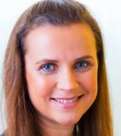
Marissa Shipley, Founding partner / Director, CompliantERP
Marissa's career began when she graduated with a maths degree and was struggling to find employment in this field. Marissa looked around at other opportunities and decided to pursue a post-graduate in IT. Marissa also has a Psychology degree, which has helps her understand people & organisations and to positively influence conscious and subconscious bias.
Upon completing the post-grad course in IT, Marissa commenced as a Level 1 IT Help Desk person, and then quickly rose through the ranks to become a Manager. Marissa promptly recognised the market was shifting and noticed a product called 'SAP'. She took a job not knowing anything more than SAP ran on a database and took the risk based on her intuition and 'gut feeling', that SAP was going to be a growth area for ICT.
This was the start of Marissa's path to success, and in the following years, she took roles as a Management Consultant at PwC, then being an independent contractor with key project roles in the US and Australia. She forged her way specialising in SAP Security, compliance and identity management and noticed a gap in the market and decided to start her own consulting business.
The business has been running since 2013 and has gone from strength to strength becoming a globally recognised SAP Silver Partner and
contributor to the SAP ecosystem globally. Now, Marissa Shipley is an internationally renowned leader in ERP Security and Governance
regularly consulting to Tier 1 Global Organisations.
Marissa is passionately involved in assisting women in the IT sector and is an active member of the 'SheLeadsTech' program.
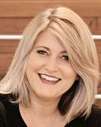
Rebecca Wilson, CEO at Starts at 60, Travel at 60 and Boom Baby
Rebecca is no stranger to risk, having dealt with it on every frontier, with grace. She funded the first two years of Starts at 60's herself and developed a market position that was undeniable to investors. She paid staff to develop the early-stage platform that got the business to a Series A round.
Passionate about the scale of the opportunity to serve the 'Baby Boomer digital first' in a far wider way, Rebecca sought venture funding for Starts at 60, carefully selecting a strategic investor that would put up barriers to entry and solidify the business as a real player in an industry she had no prior experience in.
Rebecca took the risk that everyone said the Baby Boomer was emphatically NOT online. Yet we built an enormous following on social media that behaved differently and wanted different things to other generations. There was no rulebook, and every day was trial-error and risk taking.
The company invested in technology very early in our business' growth, both into custom-technology development, and in the deployment of powerful ad-tech and media-tech that would allow our business to stand up to the stiff competition.
We initially built Travel at 60 as a media play, but we failed to deliver to clients the very thing they needed to value our ecosystem - conversions. We decided to take even more risk and build a lead-gen marketplace.
We custom built the technology, underpinned it with a custom-created product API and algorithm, went to market and engaged retailers as partners and started marketing to consumers. This built a good lead-flow for advertisers but their feedback meant the model had to change again.
Our third model in September 2018 saw the launch of a new stage of our digital first platform, supported by an inhouse full-service call centre and product development team. This has scaled beautifully. We have just surpassed $12M in run rate TTV (total revenue) for the year, an enormous feat. More importantly, we've proven that the Baby Boomer will buy online, will buy from us, and can scale and shift away from their incumbent channels.

Stan Kaine, founder and CEO of Point Duty
Stan Kaine is the founder and CEO of Point Duty, which is a software development company specializing in data capture and visualization for use by Defence, Law Enforcement and Intelligence agencies across the world including the New York Police and US Marines.
The original idea to create Point Duty was formed when as a father of three young children he noticed that the same software application that they were using to download music on Peer to Peer networks could also be used to access child pornography. He initially tried to make people aware of this terrible situation, but was unsuccessful so began working on a software application "Point Duty Discovery" that allowed law enforcement agencies to track down the IP addresses of those sharing illegal material.
The same product was also able to be used by intelligence agencies to track terrorist related information movement over the networks and it was this use that established the company.
Stan quit his job as an IT program manager with TAFE Tasmania to work full time on the project in 2007. The suite of products has subsequently expanded to include data capture tools for Social Media and sites that exist in the "dark web" as well as a connectivity framework that allows many different tools to work together as a "best of breed" suite.
In 2014, he was contacted by IBM who asked if Point Duty would like to partner with their Analytics division. This provided an opportunity to take the company to a worldwide market and has acted as a catalyst for growth.
The company now has 35 employees in Queensland, Tasmania, NSW and the ACT with others in the UK, China and the US. Over 95% of its business comes from international clients with expected revenues for the current calendar year to exceed $US10 million.
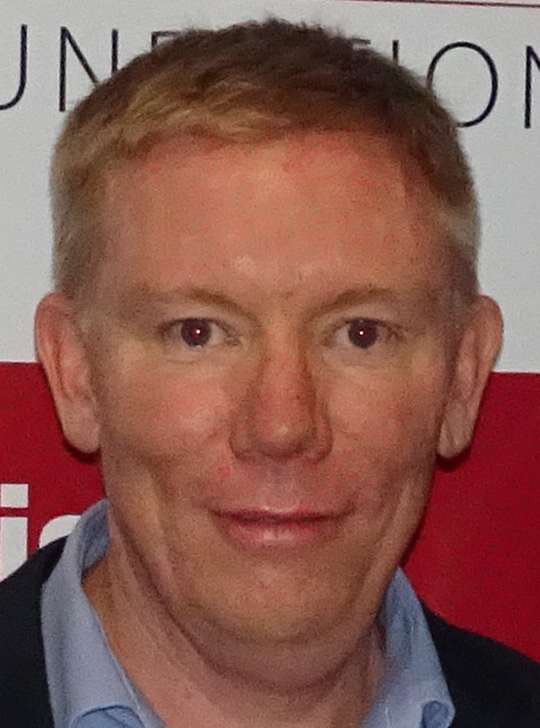
Tim Neale, Managing Director at DataFarming (Australia)
Tim's passion to increase the adoption of technology for the benefit of the agriculture sector drove him to create DataFarming. It was an enormous risk to personally invest over $100,000 into developing a web platform that could assist farmers and agronomists in improving the management of their crops and pastures using real time satellite imagery from the European Space Agency. This type of investment and research was unchartered territory for Tim and family - with their previous businesses benefiting from organic growth.
When Tim developed the DataFarming platform, he had no idea what the outcome was going to be. Although Tim has many years of industry experience, he realised there was still a large gap between on-ground users and technology. He also had a desire to create a longstanding legacy and positively impact on as many farmers and agronomists as possible.
This risk that Tim and his family took paid off, and DataFarming is now one of the fastest growing agtech companies in Australia. The reason DataFarming has been so successful is due to the relenting focus on removing barriers to technology adoption - simple to use, low cost, easy to access.
It's pleasing to report that up until August 2019, over 12,500 farms covering more than 62,000 individual paddocks now use the system. This is less than two years from release. Over 7 million hectares of paddock data has been processed, giving farmers and agronomists incredible insights into ways to increase productivity or reduce input costs. This is a rate of adoption never been seen before in any ag technology.
The market for this type of product is becoming increasingly competitive with multinational companies being backed by plenty of investors. However, Tim's lengthy experience in the industry and close networks assisted in providing valuable inside information, and avoiding pitfalls that other companies have found themselves caught up in.
Tim took a big risk and had the insight to tailor DataFarming to suit the market; by providing simple to use innovative technology; to be collaborative, whilst valuing business relationships.

Victor Vicario, CEO Arc Hardware Incubator/Accelerator
Since he can remember, Victor Vicario has been fascinated with technology and innovation. The older he became the more he realised how hard accessing the right resources and knowledge to commercialise innovation was. After years of engaging with new technologies through community groups, startups, industry and research, in 2018 he opened Australia's first and still the most advanced Hardware Incubator called Arc.
Victor created the Incubator to combat the current lack of access to prototyping technologies which has encumbered countless inventions coming to fruition. Arc was specifically designed to provide startups with a much-needed solution, enabling entrepreneurs efficient and affordable access to industry-leading prototyping equipment including electronics labs, 3D-printers, laser cutters and moulding machines, plus hands-on training and unrivalled industry mentorship at a fraction of the current market costs.
In creating Arc, Victor was driven by the belief that all entrepreneurs should have the opportunity to realise their dreams. Arc's vision is to foster and encourage talented, driven people with great ideas and provide them with the opportunity to create and test the market.
In the last year, through the incubator and through a series of programs supported by the Australian Government's Federal Incubator Grant plus Industry Sponsors, Arc has helped more than 100 startups fast track the development of their innovations.
Creating Arc from a mere concept to reality required years of research, modifications, trials and much more, which Victor took on as well as running two startup businesses and doing his PHD and lecturing. With more than 50 startups already reaping the benefits of Arc's resources, connections and technical know-how, Victor is thrilled that his Incubator is making a real difference to the startup and ICT ecosystems.

Yasmin Grigaliunas, CEO & Co-founder of World's Biggest Garage Sale
Yasmin Grigaliunas started the World's Biggest Garage Sale as a hobby in 2013, taking time off from work and in her holidays running these Events to raise money for charity. Her humble idea of a garage sale has never actually been held in a garage. Yas has velocity like no other, which has been pivotal in her ability to scale up the opportunity that has exploded in size.
In 2017 she ditched a lucrative salary to commit full-time to her role as CEO and Co-founder of The World's Biggest Garage Sale (WBGS), innovating and designing solutions to commercialise the circular economy through putting dormant goods up for sale. A partnership with News Corp, forged at that time, lead to $1.1 Million dollars of AEV (Advertising Exposure Value). This allowed WBGS to consistently attract a significantly higher number of shoppers, making this a fixture in the retail landscape of Brisbane.
Yas had already approached Goodman in 2015 about using dormant warehouse space for WBGS events. A partnership was also developed with Cisco via Corporate Volunteering and the provision of technology.
Yas has been very bold in her vision, through these strategic partnerships and mobilising the community, the events have grown from 500 people in 2013, to 2,000 in 2014, 4,700 in 2015, before exploding to more than 20,000 in 2018.
The Circular Economy is set to be worth $4.5 Trillion by 2030 with 500,000+ Council Regions in Western Countries and 54,000+ charities in Australia, combined with 89% homes in Australia having dormant goods
WBGS will continue to support the market demand it created, expanding into other segments, including returned or obsolete stock from major retailers, a re-commerce website, retail facilities, decluttering services and corporate events. This creates reverse logistics for these products and makes them available via WBGS events.


Karen Joyce and Paul Meade, She Maps
Karen Joyce and Paul Meade have very diverse backgrounds which they have been able to put together to create something extraordinary within their small for-purpose business called She Maps.
Karen has worked with geospatial technology since the late 1990's. Over the past 20 years, she has worked in military, government, industry, and academic roles to further the use of satellites and drones to map and monitor the environment, particularly in fragile ecosystems like the Great Barrier Reef.
Paul is a strategic leader who believes that the world is a better place when we are challenged through continuous learning. His 11 years in the military, leading teams around the world, and teaching in the Northern Territory, have given him many opportunities - a mix of making mistakes and achieving incredible success.
It is through these unique, but complimentary skills, that Karen and Paul have combined their love for learning into a for-purpose business, which serves to create impact by engaging more women into the STEM community.
She Maps was created out of a desire to change the face of the STEM workforce. Stereotypes and bias affect our perceptions of the types of activities and careers that align with STEM, and who is capable of achieving them. Women are sorely under-represented. Karen and Paul recognised that diversity is a critical component of innovation, and innovation drives our economy.
Trying to disrupt and change the education sector as well as bust some industry stereotypes by using a disruptive technology such as drones and coding, creates some inherent risk in the business model. However, from the time that the first program was run, initially with a view that it would be a 'oneoff' event through Karen's role at her University, they knew that more could be achieved.
The program creates STEM educational and engagement activities focussed on geospatial sciences embedded with ICT - coding, drones, satellites, and mapping. In the workforce, these are highly technical, male dominated disciplines, and represent atypical science subjects. Both these factors allow the She Maps team to challenge the two embedded stereotypes surround what constitutes STEM, and who does it.
What began as a single activity run at a local high school rapidly grew beyond what Karen and Paul thought would ever be possible. They soon recognised that to make a real impact in changing the face of the workforce, they needed to increase their reach to spread the message.
Karen and Paul set about developing an Instructor Training program to train others to be able to teach the program, which began receiving attention from around the country. Since 2017, Karen and Paul have trained instructors to use their program to engage youth in Australia, the USA, Fiji, Kenya, Jamaica, Panama, Philippines, PNG, Senegal, Tanzania and Uganda.
Since 2017, Karen and Paul, along with their team, have delivered their face to face program over 200 times, to over 5,000 students and teachers. Their affiliate instructors have delivered the program to hundreds more. They have also participated in many conferences, workshops and STEM fairs that have given thousands an insight into how diversity in STEM is critical for our workforce and industries. Their online resources are also being used by nearly 1,000 teachers from around the world.